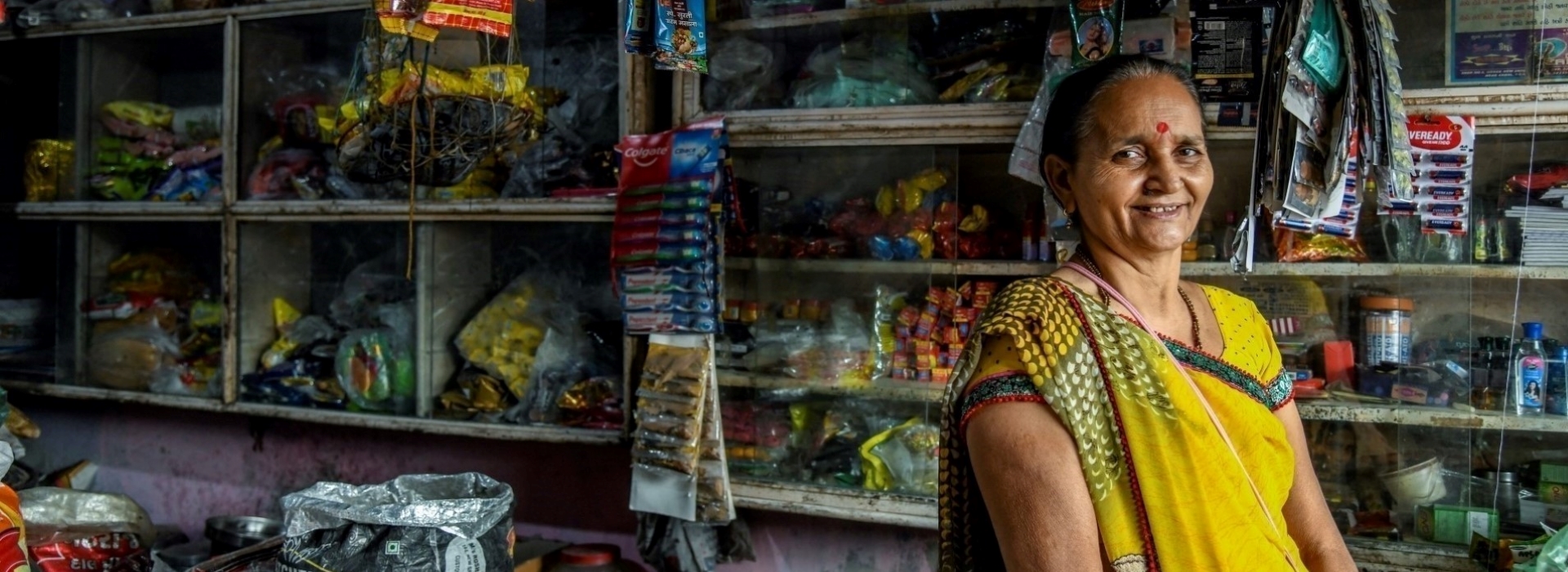How one kirana owner took her store into the digital age
June 27, 2022 | By Vicki Hyman
“I dared to step out and change our lives,” she says, but admits the early years were difficult. “We did not have our own house, not have proper employment … but I didn’t give up. I was determined not to return back to my village.
Now Patel, 58, runs Umiya Provision Store and has a wholesale unit managed by her son. Umiya is known as “Aunty’s store” because she has built close relationships with her customers. “I treat everyone fairly,” she says. “So my customers trust me and that keeps them coming to me over and over again.”
These small neighborhood stores that cater to everyday needs are known in India as , and there are an estimated 12 million of them, representing an opportunity ripe for women in a country where only one in five work outside the home for pay. In fact, India experienced the second-largest drop in female entrepreneurship last year, according to the latest Mastercard Index of Women Entrepreneurs.
Mastercard has committed $33 million to help women and other underserved businesses in India become more resilient and recover in the wake of the COVID-19 pandemic. In addition to this commercial investment, the Mastercard Center for Inclusive Growth partnered with an Indian NGO, Access Development Services, to equip and train kirana owners with access to know-how and digital tools to help them run their businesses more efficiently and grow.
Digital tools, such as digital payment and inventory management apps, help kirana shopkeepers document and digitize their transactions, building a payment history that can be used by financial service providers to assess credit risk and extend mainstream finance. The program complements digital adoption with training on business and financial management best practices, customer satisfaction, and financial literacy.
Before taking part in the program, Patel says, her bookkeeping was haphazard, relying on a single notebook to keep track of stock, accounts and creditors. She since has been able to diversify her offerings, keep better track of her inventory, adopt new promotional strategies, and save money by putting in her wholesale orders online.
“I have only studied ‘til 7th grade but I have skills!,” she says. “Women need to take decisions by their own, they should be brave in risk taking. If they wish, they can run any business and lead their life independently.”